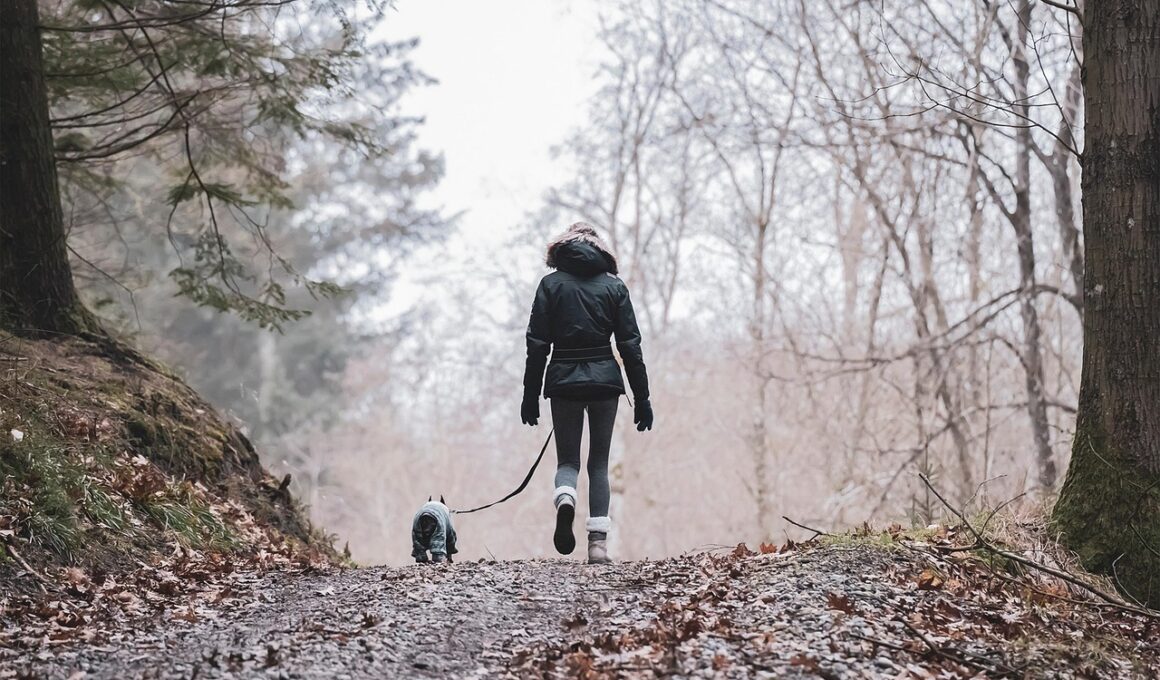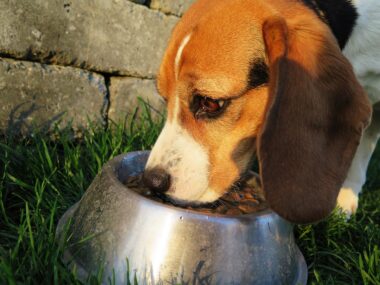Feeding Your Dog During Outdoor Adventures: Hiking, Camping, and More
When embarking on outdoor adventures with your canine sidekick, it’s crucial to prioritize their feeding and nutrition needs. Dogs thrive on routine, and sudden changes can lead to digestive issues or behavior problems. Ensure that you prepare a feeding schedule that closely resembles their regular routine as much as possible. Pack nutritionally balanced dog food, such as high-quality kibble or dehydrated meals, that can withstand travel conditions. Remember to account for the activity level; a hiking dog may require more calories due to increased physical exertion. Additionally, remember to bring collapsible bowls for easy hydration and feeding. Consider the weather conditions and adjust portions accordingly, particularly during extreme heat. Mylar bags or airtight containers help keep food fresh and protect it from outdoor elements like moisture and pests, so consider investing in those for extra practicality. Always keep a source of fresh water available for your furry partner, as staying hydrated while engaging in outdoor activities is vital for both dogs and humans alike. You want to ensure that your journey remains enjoyable for both of you.
Essential Nutritional Tips for Active Dogs
When planning meals during your outdoor excursions, it’s essential to focus on providing a well-balanced diet. Consider using high-protein dog foods, combined with healthy fats, which are ideal for high-energy dogs awaiting outdoor adventures. Dehydrated meals can be an excellent option since they are lightweight and easily transported. Make sure to follow the manufacturer’s guidelines for portions based on your dog’s size and energy levels, as overfeeding can lead to discomfort or lethargy during hikes. Supplementing their diet with treats is another way to boost their energy levels; choose nutritious options like jerky or dried fruits that pack easily. However, moderation is key! Not all human snacks are safe for dogs, so always research before including anything unusual. Look for treats that offer health benefits, such as glucosamine for joint health. Hydration is essential, as dogs lose moisture more quickly during strenuous activities. Always carry enough water for regular drinking breaks, ensuring your loyal friend stays energized and hydrated. Incorporating these nutritional strategies will lead to a more enjoyable adventure.
Availing dog-friendly trails can greatly enhance your outdoor adventure experience. Therefore, it’s vital to always check the regulations of each trail or campsite beforehand regarding pet policies. Some locations are more accommodating to dogs than others, allowing for comfortable exploration without any hindrance. Always opt for trails that offer sufficient shade or water access, especially on hot days. Bring along dog gear, like a hiking harness, leash, and dog booties for extra support on rugged terrains. This support ensures that your pup can navigate without risking injury to sensitive pads. Keep an eye on your dog’s energy levels, especially when considering longer hikes. Take appropriate breaks for meals and rest, allowing your pup to recharge while you enjoy the great outdoors. Monitoring their behavior during walks, such as signs of fatigue or heat exhaustion, will help ensure their well-being. Have a first aid kit handy, including items specific for dog needs to manage any minor injuries efficiently. With careful planning, your excursions will be both enjoyable and safe for you and your four-legged friend.
Pack Smart: Essentials for Feeding on the Go
When heading into the great outdoors, packing the right essentials ensures that you and your dog have a great feeding experience. Begin by creating a checklist to avoid forgetting necessary items. Essential items include portable, easy-to-clean bowls, appropriate food storage containers, and healthy snacks. For hiking trips, consider using vacuum-sealed bags that minimize space while maintaining the freshness of your dog’s food. Collapsible bowls are an excellent option for convenience and can fit easily into backpacks. Focus on options that provide food and water in one unit for practicality. Be aware of your dog’s dietary preferences; if your furry friend enjoys wet food, opt for easy-to-carry pouches. Additionally, include a collapsible water bottle to ensure hydration throughout the journey. Check food expiration dates periodically and rotate supplies to keep everything fresh. Have designated containers or bags for waste management to respect nature and ensure a clean environment. Packing these essentials will help facilitate an enjoyable dining experience for your dog on your adventures together.
Practicing responsible feeding habits while outdoors greatly enhances your experience and contributes to maintaining a clean environment. Dogs thrive on consistency, so always try to stick to your routine for feeding times and snacks. If your dog is accustomed to a specific meal at home, keep that same structure intact even while you’re exploring. Use biodegradable bags to dispose of waste sustainably and responsibly before leaving any site. Teaching commands like ‘leave it’ or ‘drop it’ ensures that your dog remains focused and safe during mealtimes. Moreover, ensuring that they’re trained in basic obedience promotes positive behavior when encountering other dogs or wildlife. Set up designated feeding areas away from trails or other animals to prevent competition for food; this reduces stress and promotes a relaxing atmosphere. Engage your dog with light play or commands post-meal to encourage digestion while keeping them entertained. Preparing healthy meals and ensuring good behavior can go a long way in fostering enjoyable outdoor experiences for both you and your furry friend. Always remember to leave no trace!
Coping with Emergencies: Meals and Snacks
Prepare for emergencies by packing nutritious snacks for your dog in case of unexpected delays during your outdoor adventure. Durable, high-energy treats are perfect for keeping your pup energized and happy if meals run late. Consider packing protein-rich snacks like peanut butter or meat-based bars that will sustain your pup until proper feeding can occur. Opt for dehydrated meals or snacks that are easy to prepare in emergencies; simply add water, and you’re ready to go! Check that the food’s expiration dates are in line with your travel plans to avoid waste or risks. Additionally, pack a first aid kit specifically for dog needs, including feeding gear such as a portable bowl. If your dog has specific dietary restrictions or allergies, ensure you adhere to them by bringing enough safe food and snacks. Having a well-thought-out meal strategy for emergencies ensures that both you and your loyal companion can remain calm and focused during unexpected situations. Always prioritize your dog’s health, as an adequately fed and hydrated dog is a happy traveling dog!
The importance of consulting a veterinarian before embarking on outdoor adventures cannot be overemphasized. Discussing your dog’s specific nutritional needs, health concerns, and exercise levels with a professional can lead to tailored advice suitable for your companion. Preparing your dog for the conditions you may encounter—be it altitude, temperature fluctuations, or varying exercise levels—ensures their health and safety during outings. Regular check-ups can also lead to enriched meal plans based on your dog’s energy needs. If your dog has any special dietary restrictions, having your vet adjust their nutrition plan before heading out can avoid potential health issues. Don’t forget to inquire about suggested supplements, especially hydration alternatives if you plan on longer hikes. Gathering this knowledge beforehand solidifies a proactive approach towards your endeavors, allowing for confident exploration. Consult your vet about seasonal factors that could influence your dog’s health, as different environments can bring forth allergens or pests. Armed with the right knowledge and nutrition plan, you and your dog can enjoy a fulfilling outdoor bonding experience!
During your outdoor explorations, monitoring your dog’s health is vital for their overall enjoyment. Keep an eye on their behavior, energy levels, and physical condition, adjusting nutrition accordingly to suit the day’s activities. Dogs that are more active may require additional snacks or larger meal portions, while dogs at rest may benefit from lighter meals. Additionally, maintain regular hydration checks; dogs may be inclined to drink less during trails due to excitement or distractions. Offering water breaks more frequently ensures they remain healthy and energized. Consider their recovery post-hike as well, providing nutritious meals to restore energy and support muscle recovery. Feeding them quality protein after strenuous activity can aid quicker recovery and boost their energy levels for the next adventure. Don’t hesitate to consult your veterinarian for proper nutritional strategies tailored to your dog’s age, breed, and health. By prioritizing these factors, you can prevent fatigue or exhaustion and foster a lifetime of happy outdoor memories with your pup. Enjoy the incredible bond you cultivate together, filled with fun, excitement, and exploration as you travel with your cherished companion.





